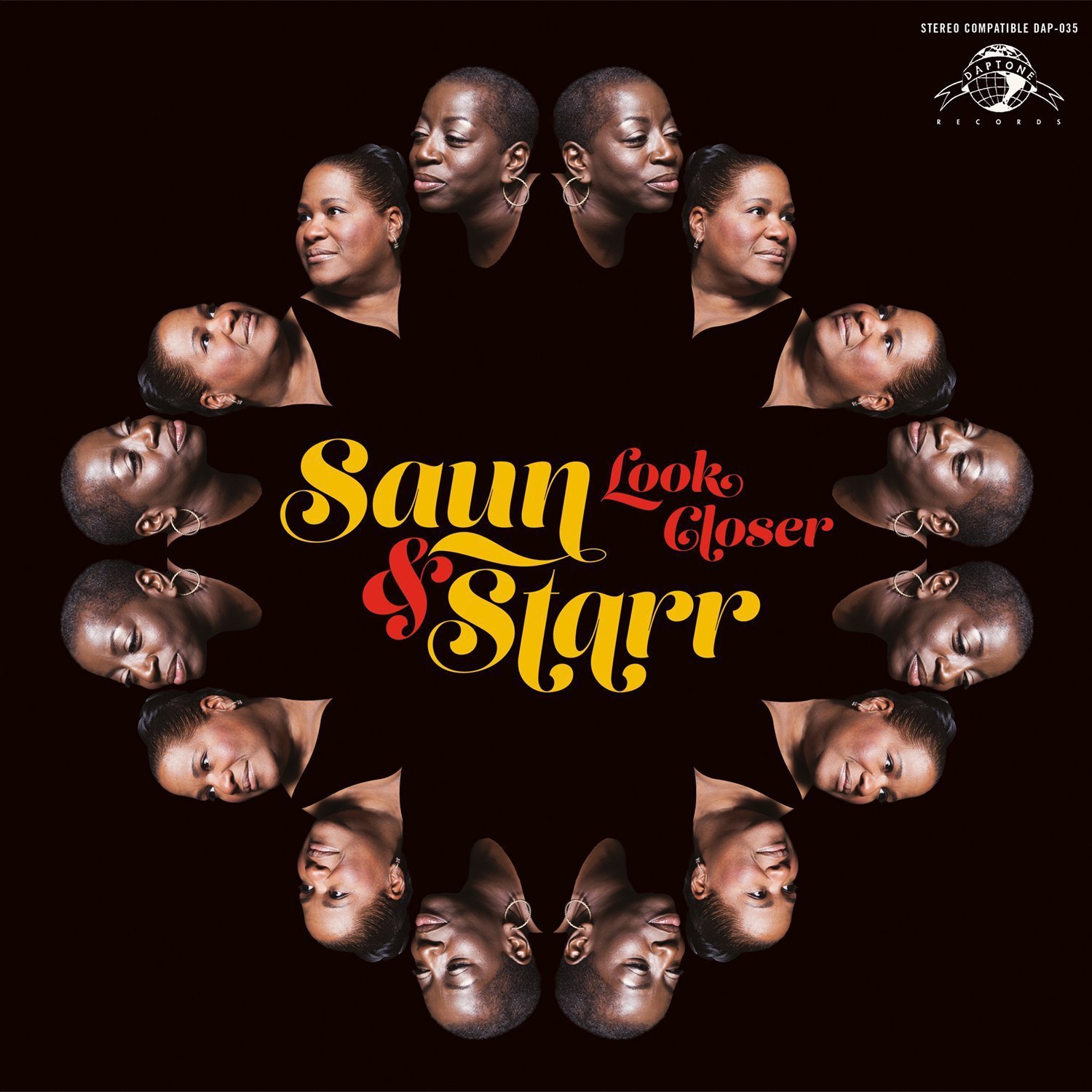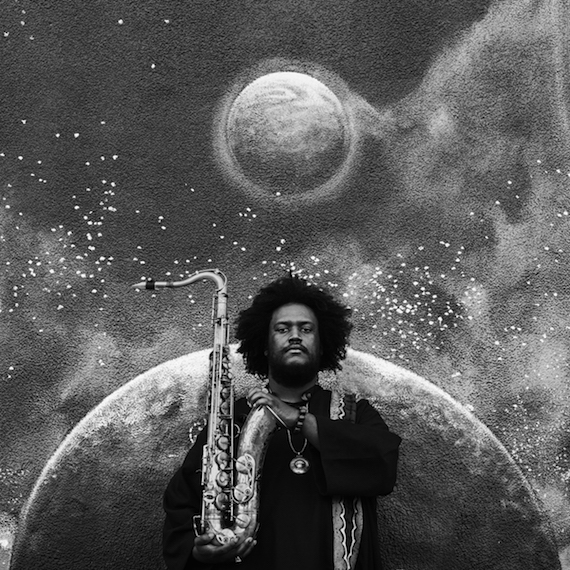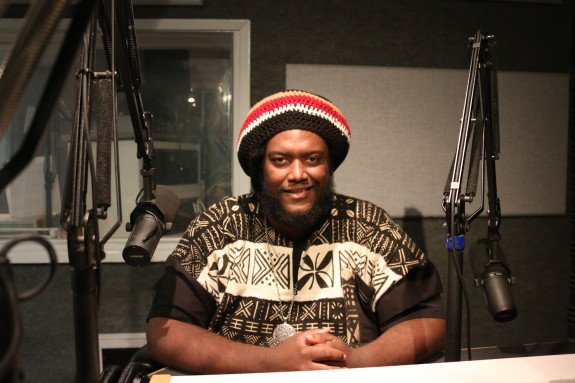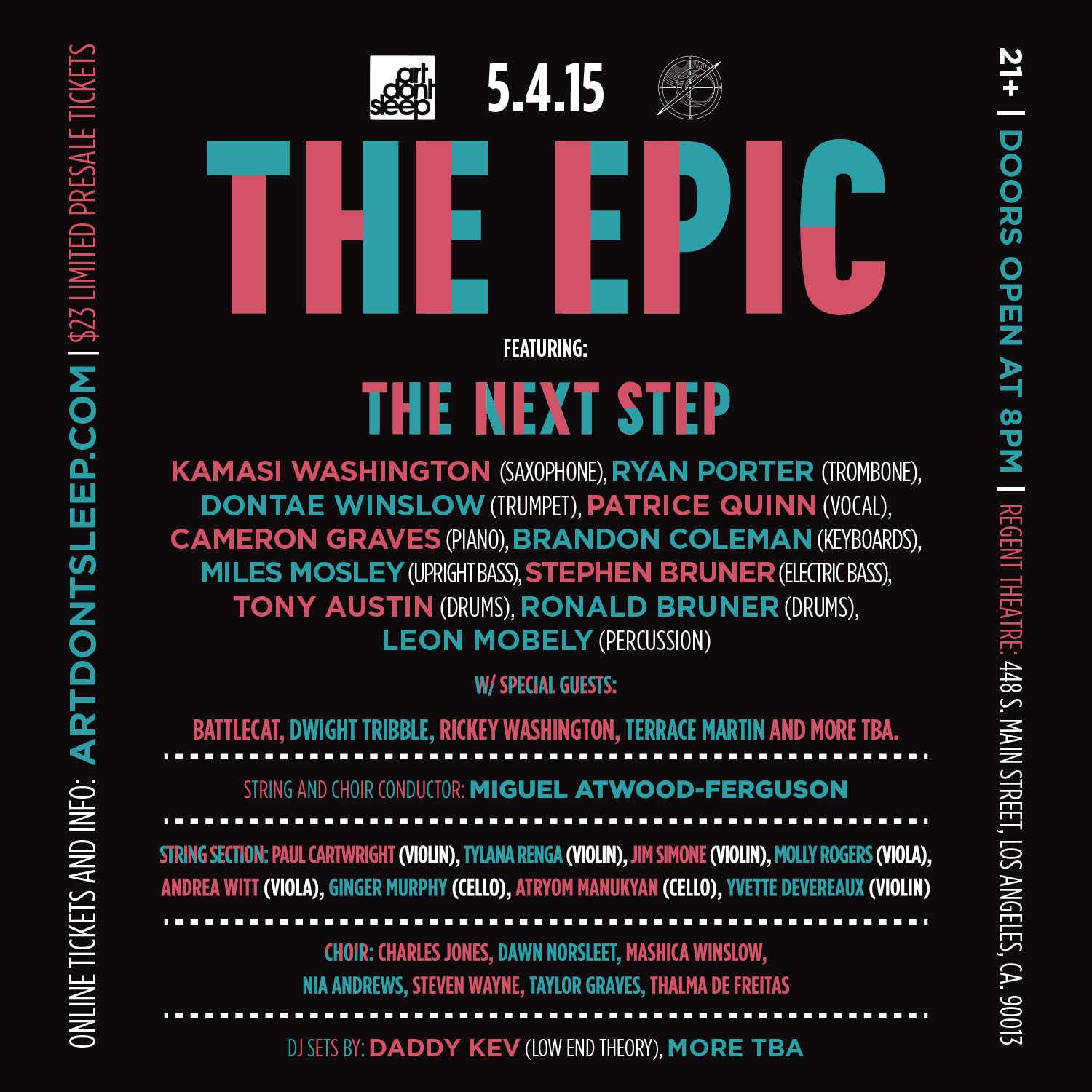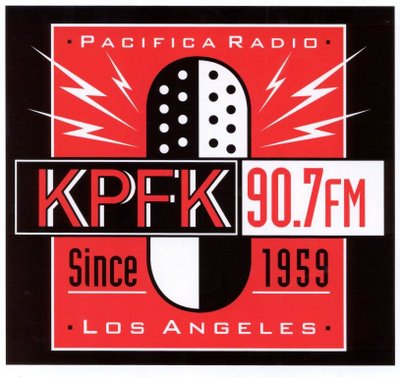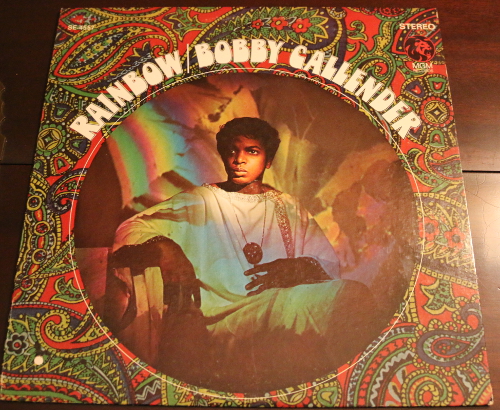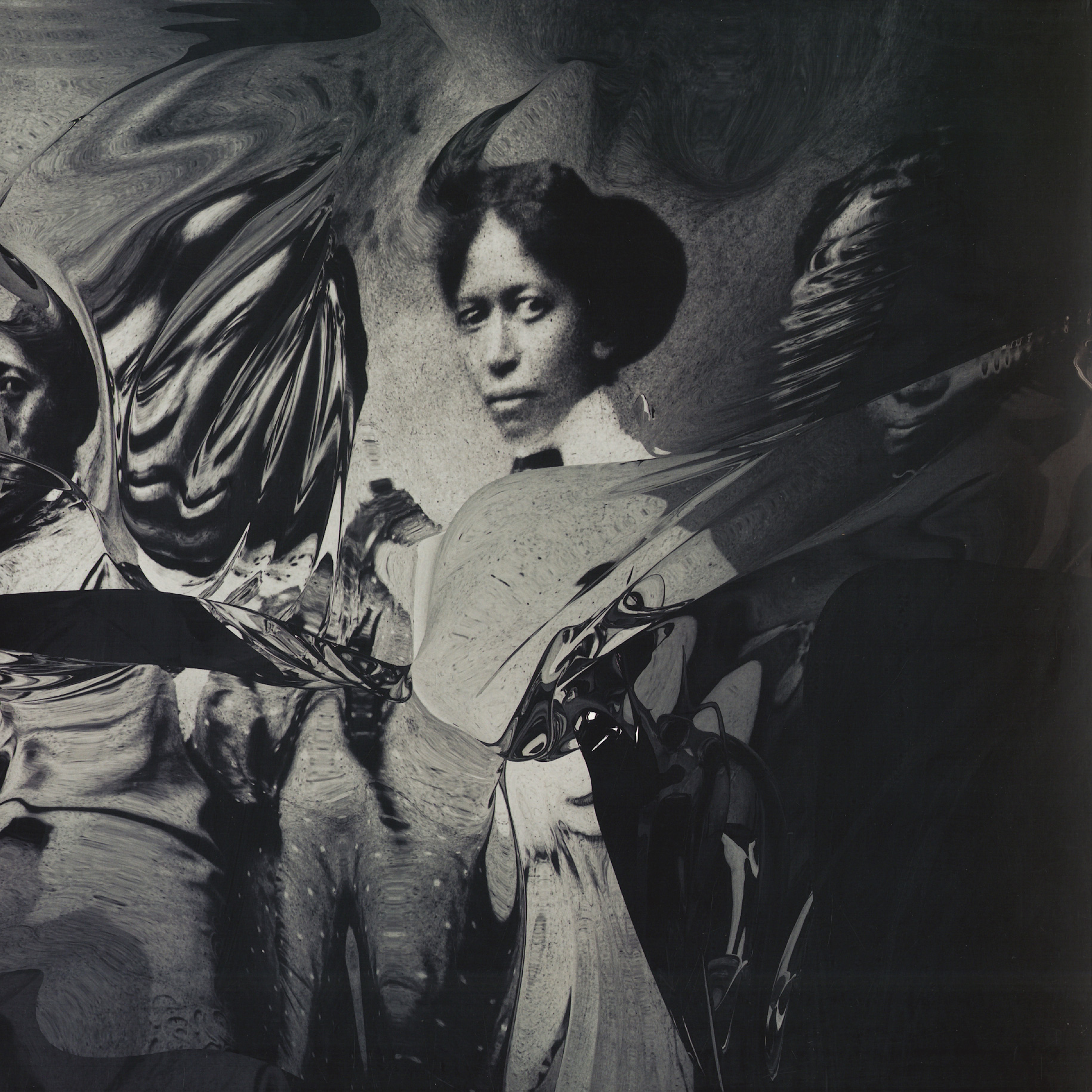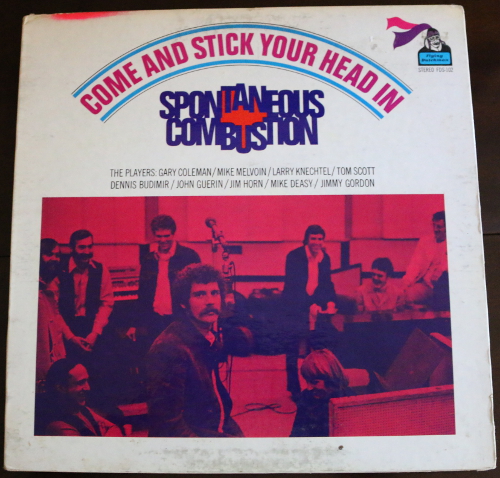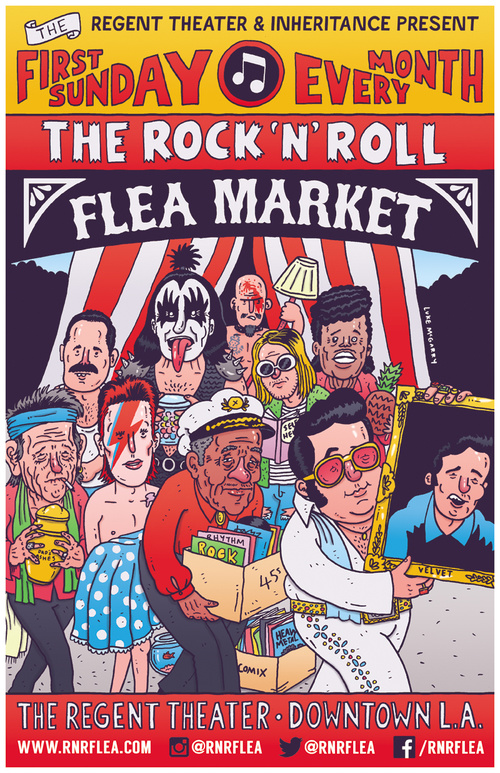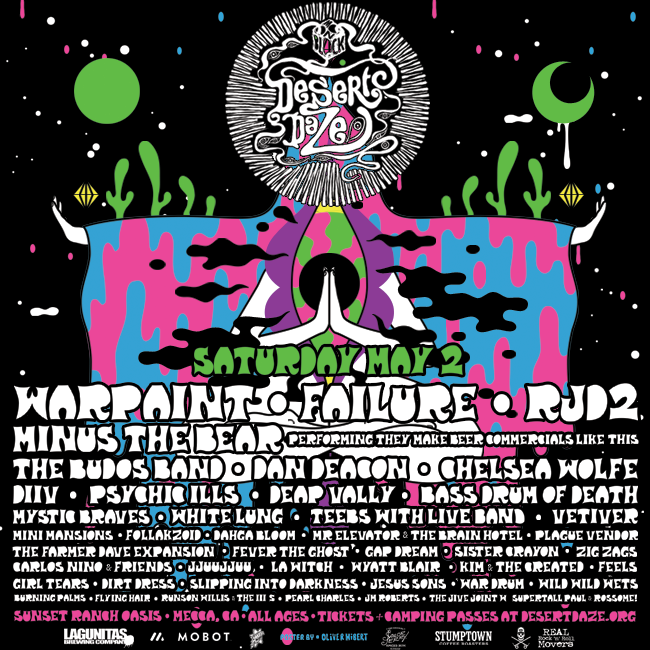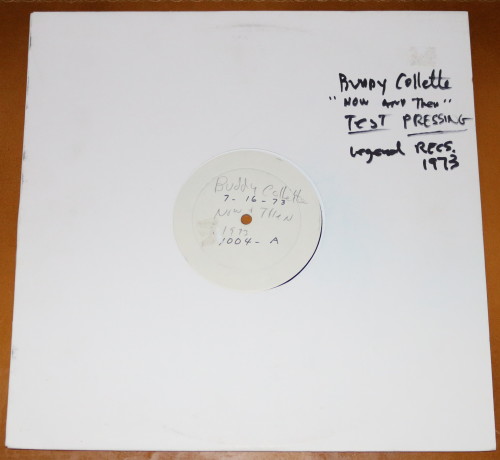It’s rare that “back-up” singers are given the chance to shine in the spotlight, but Saun & Starr are able to do that here on their debut “Look Closer.” The duo have been Sharon Jones’ singing partners for many years and set, with the legendary Dap-Kings in tow, shows that both women have a style all their own and the singing chops to make a whole lot of more prominent singers jealous.
Kamasi Washington – Malcolm’s Theme
By now I’ve had a few more weeks to spend with Kamasi Washington’s long awaited release, and perhaps the most appropriately titled record of the 21st century, The Epic, and my feelings for it haven’t changed much over that period of time. The Epic is finest Jazz recording of this new century. At three separate CDs (I don’t even know how many sides of vinyl this would end up being…8? 10???), 17 tracks and almost 3 hours in length, you could be excused for thinking that there must be some filler here, or some moments that drag or some tracks to skip…but there are none. What we have is an exceptionally thrilling piece of music, from start to finish, that encompasses the many different styles and moods that Kamasi and his group, The Next Step, augmented by strings and a choir, have been associated with over the last several years here in Los Angeles.
While The Epic has drawn some comparisons to the work of John Coltrane in his spiritual period, post “A Love Supreme” and Miles Davis’ fusion groups of the mid-1970s, I don’t really find those comparisons particularly apt. Instead, the artist whom Kamasi, with varied styles and sounds on this album, most reminds me of is Rahsaan Roland Kirk. Kirk was a true master of his many instruments and part of his mastery was the ability to play any style and any time, and to sound at home, whether it was New Orleans Dixieland or straight up Jazz-Funk. Kamasi has that similar chameleon ability, not only in the seamless way songs incorporate multiple genres, but in his playing itself. Whereas many contemporary saxophone players clearly worship at the altar of a single influence (generally John Coltrane), Kamasi’s solos flow from the sublime and softness of a Lester Young, to the fire and brimstone of Pharoah Sanders to the greasy soul of a Lou Donaldson or Rusty Bryant, without sounding directly like any of those masters. Such was the quality of Rahsaan Roland Kirk that made him beloved by so many, a quality that Kamasi also seems to be developing as his own legend grows. Another link to Rahsaan is the importance of dreams for his music, and the inspiration of dreams that compelled Kamasi to not break up this music into separate releases, but to group all 17 tracks together into a three part story.
In truth, the sound displayed on The Epic owes less to Rahsaan, than it does to the artist collectives of the 1970s, from here in Los Angeles with Horace Tapscott’s Pan Afrikan Peoples Arkestra, to the spiritual and uplifting sounds of Mtume Umoja Ensemble, Billy Parker’s Fourth World and the Ensemble Al-Salaam. The Epic shares the adventurous sound of those artists, while not being solely anchored in the past. As with those groups, it’s highly likely that the ability of Kamasi to not be tied to a single sound or a signle definition of what his music could be is owed to the fact that he’s been able to record this album for the artist controlled Brainfeeder record label, at the behest of label head Flying Lotus. There’s a freedom within this album that you rarely see in contemporary jazz, a freedom to honor the past, but to push the artform into the future.
Given my particular tastes, it’s perhaps not surprising that I am most drawn to the songs that do seem to be most influenced or directly referencing the past, as is the case on the song chosen for this review, “Malcolm’s Theme,” a piece that serves as a fitting tribute here on the 90th anniversary of Malcolm X’s birth. Kamasi’s choice to have Patrice Quinn and Dwight Trible render Ossie Davis’ moving eulogy to Brother Malcolm into song, along with the rhythms provided by the band, take a piece that could have been elegiac and make it triumphant. Malcolm’s voice, interposed with the music, speaks to us, and remains relevant these 50 years since his murder. As the penultimate song on The Epic, “Malcolm’s Theme” serves as a reminder of the paths we have taken to arrive at the present, and of the work we still have ahead to create a future worthy of those who made it all possible. That future is made brighter by Kamasi Washington and the musicians who have given us a true blessing with the music on this album.
{As you might have guessed, I’m taking a bit of a hiatus from the blog and radio show as I finish this semester’s grading. I’ll be back on May 19th, Malcolm X’s birthday, with a review of Kamasi’s new album. Until then enjoy the music!}
Had the pleasure of sitting down with Kamasi Washington this past week as the world finally gets to hear his stunning masterpiece, and winner for the most appropriate title in the history of history, The Epic, a 17 part, 172 minute tour-de-force. In our interview we talked about Kamasi’s musical upbringing here in Los Angeles, how he found his way to the saxophone and the collective of musicians and friends that make up his groups The Next Step and The West Coast Get Down. We also dig deep into the multiple stories of The Epic, including some insight into two of the songs that you’ll hear in the interview, “Henrietta Our Hero” and “Malcolm’s Theme.” There’s a very strong chance we’ll be able to welcome Kamasi back in the Summer, but until then, enjoy this full version of the interview (the version we played on air featured edited songs and focused solely on the new album) and make sure to get this album as soon as you can when it is released tomorrow!
Kamasi Washington Interview on KPFK’s Melting Pot: 04-29-2015
{If you’re here in Los Angeles, you still have time to catch what should be an epic night of music at the Regent Theater in DTLA, as Kamasi, his 11 piece ensemble, The Next Step, along with an 8 piece string section, a 7 piece choir and many special guests, will grace the stage to perform music from The Epic, in celebration of it’s release. Tickets are still available at this moment and this is one show you DO NOT want to miss!!!}
Not to toot my own horn or nothing, but this is one of the best shows we’ve done here in 2015. Nothing to do with me really, it’s the music, and it kind of dawned on me all of the sudden that virtually all of the new releases on this week’s show are all strong contenders for the end of year “Best Of” special. I know it’s only May, but I have a good sense for these things, so don’t be surprised when Annabel (Lee), Nicole Willis & the Soul Investigators, Nosaj Thing, The Sandwitches, Oddisee, and Haitus Kaiyote show in that list. Those artists are featured, along with classic material from the Flamin’ Groovies, Outkast, The Ensemble Al-Salaam and James Brown, on what would have been his 82nd birthday. The second hour is dedicated to an artist who might just have put out the best release of the year, Kamasi Washington, who is about to release his 3-part 172 minute masterpiece “The Epic.” The interview here is edited for airplay, there’ll be a separate post soon with the full version. If you’re in LA and you got the time, make sure to hustle down to the Regent tonight for the release show celebration featuring Kamasi and essentially every player of consequence in the Los Angeles area. This is likely to be the last Melting Pot for a while, as KPFK is going into fundraiser mode for the next month and I’ve got a mountain of grading to do…until we meet again, enjoy the show!
Melting Pot on KPFK #196: First Hour
Melting Pot on KPFK #196: Second Hour
Bobby Callender – Rainbow/Nature
Bobby Callender – Purple
Bobby Callender – Symphonic Pictures
While I might still hold on to that Spontaneous Combustion record, I’ve already said goodbye to this one from Bobby Callender. It’s no comment on the quality of the album, more connected to knowing that I’d be able to get something else that I’d truly cherish through a trade with Cool Chris at Groove Merchant. Rainbow is a true-blue Hippie psychedelic album of the times, with Callender reciting poetry to sitar laden, fuzz inflected psych sounds. “Rainbow” and “Nature” lead off the album and although they’re separate trakcs they just seem like they should go together and so, here they do. 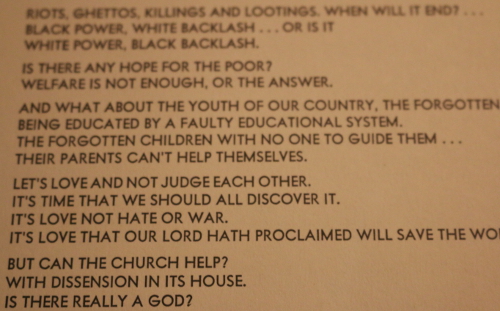 “Purple” is the magnum opus of the album clocking in a over 11 minutes, but it’s “Symphonic Pictures” that has the most staying power. Partially because of the recent events all over the country as communities seek redress for abuses from police, the words of Callender still ring depressingly true here in 2015. Apparently Callender released a couple of other records, both in a similar vein as Rainbow, though even more difficult to come by. I’ll be on the hunt for them, though chances are, I’ll likely run into them on a future pilgrammage to Groove Merchant.
“Purple” is the magnum opus of the album clocking in a over 11 minutes, but it’s “Symphonic Pictures” that has the most staying power. Partially because of the recent events all over the country as communities seek redress for abuses from police, the words of Callender still ring depressingly true here in 2015. Apparently Callender released a couple of other records, both in a similar vein as Rainbow, though even more difficult to come by. I’ll be on the hunt for them, though chances are, I’ll likely run into them on a future pilgrammage to Groove Merchant.
Cheers,
Michael
A lot of times by this time of the year my brain is more or less mush. The last several weeks of the semester are a mad rush of classes, papers, exams and long nights hard at work. Most of the time releases will slip under my radar and sometimes I might not catch up to them until mid-Summer. Thankfully I’m not too too late on this release, which might have been the best new album ever released on Record Store Day, a marvelous and moody piece of work by a duo calling themselves Annabel (Lee). From the name, to the title of the record and songs, to the imagery on the cover, there’s a clear inspiration gained from the work of Edgar Allen Poe. The music reminds my ears of the glory days of trip hop, and while I don’t have nearly enough information on the artists behind this music (Annabel & Richard E), I wouldn’t be entirely surprised if they had lent their talents to some of the UK bands of that period of time.
As you can tell from “(1849),” Annabel’s vocals don’t quite sound of this world, and the production work behind her, sparse, dark and at times downright ghostly, keeps the sound floating into the kind of space you’d think a dream-time collaboration between Billie Holiday and Geoff Barrow, both at their most melancholy, would produce. As best I can tell both artists now call Los Angeles home and so if all goes well we’ll all get to know much more about this music in the summer when I have the time to track them down and bring them into the KPFK studios. Until then, we have this music, some of the best I’ve heard all year, to tide us over.
Was in a very jazzy mood a couple weeks ago for the end of April all vinyl affair…presently I’m busy catching up for lost time and trying to get back to grading. I’ll post more about the show later on, including the playlist.
Melting Pot on KPFK #195: First Hour
Melting Pot on KPFK #195: Second Hour
Spontaneous Combustion – Space Shout
Spontaneous Combustion – Time Stitch
Spontaneous Combustion – Stone Shake
Picked this up at a PCC record swap a couple months back. As I’m doing some spring cleaning of my collection (mostly connected to a quick trip up the Bay Area and to the Mecca of West Coast record stores Groove Merchant) I’ve been on the fence about this one. Spontaneous Combustion appears to be a studio concoction of Bob Thiele, legendary for his work with Impulse and Flying Dutchman, featuring nine dudes (all pictured and listed on the front cover) who played on a fair amount of jazz-rock-funk albums around this period of time. As far as I can tell, this is the only release from the band, and while most of the songs are nothing to write home about, when they get into some good business, it’s mighty good. In addition to getting right funky, there’s all kinds of little weird avant-funk flourishes throughout the songs presented here. Solid work if you can find it.
Cheers,
Michael
Tashi Dorji was born in Bhutan, but has spent considerable time in the South, Asheville, North Carolina, and produces acoustic guitar music that honors “traditional music” from both places. It’s hard not to hear echoes of John Fahey, but that’s only because of how steeped in these traditions Fahey was as well. Appa has been a godsend for me in the last month or so when I’ve been desperately in need of “Soul Music” that opens up my mind and allows my brain to recharge. Gorgeous, pastoral and pensive…Appa’s only drawback is that the album is over just as it seems to have begun, since all of the tracks are fairly short. But these days that’s a problem easily fixed by a repeat button, and I definitely recommend spending lots and lots of quality time with this one.

Since kicking off in December of last year, the Rock’n’Roll flea market has been popping off on the first Sunday of each month from 10am until 3pm at the recently remodeled and lovely Regent Theater in Downtown Los Angeles. This particular Sunday, yours truly will be playing some maximum Rock’n’Roll on wax from 12-1pm, before I jet over to KPFK for my show. Swing by for the records, posters, vintage duds, and all kinds of memorabilia!
It’s hard not to think of Desert Daze as the “Anti-Coachella,” since the daylong fest embodies everything that Coachella does not in it’s current form. Desert Daze provides a truly diverse, multi-genre, independent array of talent for your listening pleasure, spread out throughout a single day, this year featuring Warpaint, The Budos Band, Minus the Bear (performing “They Make Beer Commercials Like This” start to finish), RJD2, Chelsea Wolfe, Carlos Nino & Friends and about 30 other acts. If you’d like a chance to escape LA for a day and see all of this music for free, make sure to e-mail me at michael[at]meltingpotblog.com before 5pm on Thursday.
Headlining the fest will be Los Angeles’ very own Warpaint, and there probably isn’t a better band to see under the stars in the cool desert night:
The Budos Band’s heavy and dark sounds ought to lend themselves nicely to the Desert Daze stage as well:
Chelsea Wolfe is another artist whose sound is just built for the night, wide open spaces and starry skies:
Started the show off with a show of solidarity connected to the upcoming commemoration of the 100th anniversary of the Armenian genocide of 1915, which resulted in 1.5 million deaths and was the original event for which the term “genocide” was created to describe. Like so many other moments of horror in history, this is something that is still unacknowledged by many people around the world, especially those in present day Turkey. Armenian Hip-Hop artist R. Mean’s song and video “Open Wounds” was created to bring greater awareness to this moment and it’s there that we began:
From there we also paid brief tribute to GURU of Gang Starr who passed away 5 years ago, and to Charles Mingus, just ahead of what would have been his 93rd birthday on April 22nd, and in between there’s a whole lot of music including new tunes from Nicole Willis & the Soul Investigators, The Sandwitches, Jose James, King Khan & the BBQ Show, Oddisee, Nadine Shah, Death and classics from Gal Costa, Captain Beefheart, Can, Ramswey Lewis and Tim Buckley. We’ll be back next week, all on vinyl to close out the month.
Melting Pot on KPFK #194: First Hour
Melting Pot on KPFK #194: Second Hour
Playlist: 04-19-2015
{opening theme} Booker T & the MGs – Melting Pot – Melting Pot (Stax)
~~~~ Break ~~~~
R. Mean – Open Wounds – Open Wounds 1915 (Self-Released)
Gang Starr – Robbin Hood Theory – Moment Of Truth (Noo Trybe)
Buddy Collette – Fun City – Now And Then (Legend)
Nadine Shah – Nothing Else To Do – Fast Food (R&S)
~~~~ Break ~~~~
Death – Resurrection – N.E.W. (Drag City)
The King Khan & BBQ Show – We Are The Champion – Bad News Boys (In The Red)
Captain Beefheart & the Magic Band – Sugar N’ Spikes – Trout Mask Replica (Straight)
Tashi Dorji – Forbidden – Appa (Bathetic)
Fernanda y Bernarda Utrera – Lo Mismo Juego – El Cante De Fernanda Y Bernarda Utrera (Fontana)
~~~~ Break ~~~~
Nicole Willis & the Soul Investigators – Paint Me In A Corner – Single (Timmion)
Ramsey Lewis – Ode – Maiden Voyage (Cadet)
Jungle Fire – Together/Los Filigreses – Recorded Live At KPFK (KPFK Archives)
The Rebirth – Show ‘Em – Being Thru The Eyes Of A Child (Walkin’ Talkin’)
~~~~ Break ~~~~
Jose James – I Thought About You – Yesterday I Had The Blues (Blue Note)
Tim Buckley – Blue Melody – Blue Afternoon (Straight)
Oddisee – Belong To The World – The Good Fight (Mello Music)
Ibeyi – Weatherman – Ibeyi (XL)
Clark – Beacon – Clark (Warp)
~~~~ Break ~~~~
Nosaj Thing feat. Chance The Rapper – Cold Stares – Fated (Innovative Leisure)
Portico – Atacama – Living Fields (Ninja Tune)
Can – Bring Me Coffee or Tea – Tago Mago (UA)
Mrr/Adm feat. Malcolm Catto – 009 – Untitled 10” (Self-Released)
~~~~ Break ~~~~
The Sandwitches – Play It Again Dick – Our Toast (Empty Cellar)
Gal Costa – The Archaic Lonely Star Blues – Le-Gal (Phillips)
Charles Mingus – Half-Mast Inhibition – Mingus Revisited (Limelight)
~~~~ Break ~~~~
{closing theme} Dungen – C. Visar Vagen – Tio Bitar (Kemado)
Buddy Collette – Fun City
Buddy Collette – Shatara
Buddy Collette – Safari West
As I’m pretty sure I mentioned previously, I’ve been buying and listening to a lot of jazz over the past year. This record came my way via KPFK’s Jazz guru Mark Maxwell, host of Rise on Sunday/Monday Midnights to 2am on the station. Last year Mark was selling records at the Beat Swap Meet and mentioned that he also had some rarer things up on Ebay at that time. He asked me if I had heard this record from Buddy Collette, who did some really solid work with Chico Hamilton and on his own in the 1950s and 1960s…I had not. Lucky for me (though not I supposed for Mark), no one else seemed to be interested in this record and I got it for a shockingly low price (so low that I think I actually gave Mark some additional money, because it just didn’t seem right getting a record this good for that cheap).
Collette was a really central figure in the jazz scene here in Los Angeles, both as a musician and as a teacher (Eric Dolphy was a student of his and I think we can all be thankful for that), well respected though not as well-known as others associated with West Coast Jazz. Just over the past year I’ve added more than a few records featuring Collette, particularly his gorgeous work with Chico Hamilton in the 1950s. This album was a bit of a surprise, mostly because I hadn’t heard much from Collette out of the 50s/60s sweet spot. Though most of the album is fairly straight ahead and what you might expect (“Shatara” in particular reminds me of those Chico Hamilton years), “Fun City” and “Safari West” have a fantastic, almost Spiritual jazz quality to them. Like so many of the records Collette was associated with in his many many years as a player, this music seems designed to be played on calm and serene Spring days, just like the one we enjoyed today here in Los Angeles.
Cheers,
Michael

